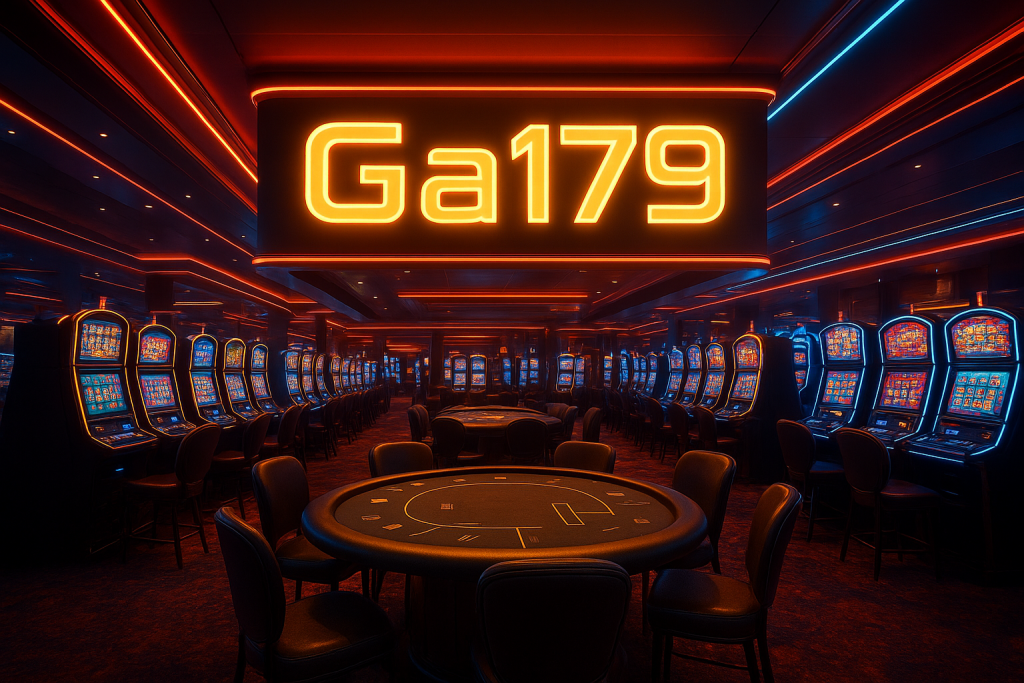
The casino industry has undergone a dramatic transformation over the last few decades, largely thanks to advancements in technology. From the introduction of online gambling platforms to sophisticated mobile apps, technology has reshaped how players interact with their favorite games. Today, whether you prefer traditional table games, immersive slots, or live dealer experiences, platforms like Ga179 have made gaming more accessible, secure, and engaging than ever before.
The first major breakthrough came with the rise of online casinos in the mid-1990s. Suddenly, players could enjoy roulette, blackjack, and slots from the comfort of their own homes. No longer limited by geography, casinos could reach global audiences, and players gained the convenience of playing anytime and anywhere. This shift not only expanded the industry’s customer base but also introduced new levels of competition, encouraging operators to innovate.
Mobile gaming took this revolution even further. Smartphones and tablets allowed people to carry entire casinos in their pockets. This accessibility meant that a quick game of poker or a few spins on a slot machine could happen while commuting, during lunch breaks, or from the comfort of the couch. As mobile devices became more powerful, graphics, animations, and gameplay quality improved significantly, creating a near-identical experience to playing on a desktop.
Live dealer technology has been another game-changer. Many players missed the social aspect of physical casinos when moving online, but live streaming technology brought that back. Live dealer games allow real human dealers to interact with players in real time via video feed, blending the convenience of online gaming with the atmosphere of a land-based casino. High-definition cameras, multiple viewing angles, and real-time chat features make this experience remarkably immersive.
Artificial intelligence (AI) has also started playing a role in casino operations. AI-powered algorithms personalize gaming recommendations based on player preferences, enhancing engagement. AI is also used in security, identifying suspicious activity, and detecting problem gambling behaviors early on. This benefits both the casino and the player, creating a safer and more responsible gaming environment.
Virtual reality (VR) and augmented reality (AR) are poised to be the next big leap. VR casinos allow players to walk through virtual gaming floors, sit at tables, and interact with other players as if they were physically present. AR, on the other hand, can overlay digital elements onto the real world, potentially allowing for mixed-reality gaming experiences. Although still in their early stages, these technologies are generating excitement about the future of interactive gambling.
Payment technology has also evolved to match the speed of online gaming. In addition to credit cards and e-wallets, many casinos now accept cryptocurrencies like Bitcoin and Ethereum. These options offer faster transactions, lower fees, and greater privacy. Blockchain technology also ensures transparency, allowing players to verify game fairness and transaction records independently.
Behind the scenes, casino software developers have leveraged advanced algorithms and random number generators (RNGs) to ensure fairness and unpredictability in games. Modern RNGs are thoroughly tested by independent auditing bodies, which helps maintain trust between operators and players. Additionally, game developers now create titles with complex bonus systems, interactive storylines, and cinematic graphics, appealing to both casual and serious players.
Social integration has been another defining change. Many modern casino platforms include leaderboards, friend lists, and in-game chat systems. Some even offer multiplayer slot tournaments or collaborative challenges, turning what was once a solitary activity into a community-driven experience.
Of course, with these technological advancements come increased responsibilities for casinos. Data protection, fair play, and responsible gaming policies are more important than ever. Advanced encryption and cybersecurity measures are crucial to keeping player information safe, while tools like self-exclusion programs and deposit limits help promote healthy gambling habits.
In conclusion, technology has not only modernized the casino industry but has also made it more dynamic, interactive, and inclusive. From online platforms and mobile apps to AI, VR, and cryptocurrency payments, each innovation has enhanced the gaming experience for players worldwide. As new developments continue to emerge, the future of casino entertainment looks more immersive and personalized than ever before.